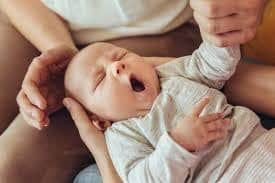NHS research programme will track health of Doncaster newborns right through to adulthood in groundbreaking study
and live on Freeview channel 276
The Born and Bred in Doncaster project will track the health of children through pregnancy, through childhood and into adulthood with midwives gaining consent of women during routing appointments.
The council was successful in its bid to central government in acquiring over £800,000 to get the scheme off the ground.
Advertisement
Hide AdAdvertisement
Hide AdThe project mirrors another in Bradford where public health teams have tracked a number of children for more than ten years.


Public health bosses at Doncaster Council said the project studying children before birth is a ‘powerful way’ of understanding the influences that shape their lives.
The study, also known as Babi-D for short, is part of a larger cohort study which includes Bradford, Leeds, and Wakefield and is supported by the National Institute for Health Research Applied Research Collaboration, building on the Born in Bradford cohort study.
Susan Hampshaw, head of public health delivery at DMBC, said: “The programme will have a strong focus on health inequalities and inclusion. Recruiting to a Doncaster birth cohort will help us track the health and wellbeing of children born in the borough.
Advertisement
Hide AdAdvertisement
Hide Ad“All pregnant women will be offered the opportunity to take part in this study. Families who join the cohort give informed consent for their data to be used.
“The health of these children can be tracked from pregnancy through childhood and into adult life and midwives will gain consent from women during routine appointments to link broad ranging routine data about themselves and their baby over time and for future contact for research.
“The data provided from this work will help the partnership in gaining a better understanding of what local families want and need from services across the borough, ensuring locally commissioned services are inclusive, and for consideration of additional research for further understanding and improvement for our population.”
In these confusing and worrying times, local journalism is more vital than ever. Thanks to everyone who helps us ask the questions that matter by taking out a subscription or buying a paper. We stand together. Liam Hoden, editor.
Comment Guidelines
National World encourages reader discussion on our stories. User feedback, insights and back-and-forth exchanges add a rich layer of context to reporting. Please review our Community Guidelines before commenting.
